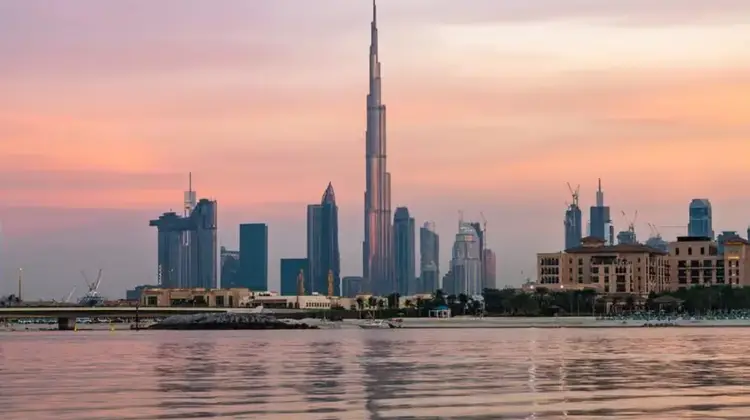Dubai’s dynamic real estate market is gearing up for an unprecedented summer, with expert analyses forecasting total transaction volumes to exceed $40 billion between June and August 2025. This ambitious projection highlights the emirate’s enduring appeal and robust investor confidence, solidifying its position as a premier global property investment destination.
This optimistic outlook marks a significant acceleration from previous years. The summer of 2024, for instance, witnessed an impressive 18% year-on-year growth in transaction volumes, with approximately 5,000 to 7,000 transactions collectively valued between Dh20 billion and Dh25 billion ($5.4 billion to $6.8 billion). The current forecast for Summer 2025 indicates a potential 25-30% increase over last year’s total transactions, signaling a new era of seasonal performance for Dubai’s property sector.
Data from leading real estate analytics provider Property Monitor further reinforces this positive trend. The average price per square foot across Dubai has shown consistent appreciation, climbing from AED 1,300 to AED 1,450, and now stabilizing around AED 1,500 ($408) per square foot. This steady upward trajectory across various market segments underscores the market’s stability and strong fundamentals, making it attractive for both owner-occupiers and savvy investors.
Key Drivers Fueling Dubai’s Real Estate Surge
Several strategic factors are converging to propel Dubai’s property market into this anticipated record-breaking summer:
1. Golden Visa and Bolstered Investor Confidence: The UAE’s highly successful Golden Visa program continues to play a pivotal role, attracting a steady influx of international talent and capital. Foreign investors now represent a substantial majority, accounting for an estimated 70% to 80% of all real estate transactions. This long-term residency incentive transforms Dubai into an even more compelling safe haven for global wealth, fostering sustained investment in its property sector amidst prevailing global economic uncertainties. The streamlined processes and stable economic environment further reinforce investor trust.
2. Off-Plan Market Momentum and Developer Incentives: A significant portion of the projected transaction volume is expected to emanate from Dubai’s thriving off-plan property market. Many projects launched in 2023 and 2024 are entering their final construction stages, presenting a crucial “last-chance” opportunity for investors to acquire units before handover-linked price escalations. Developers are strategically responding to this demand by offering highly attractive incentives, including flexible post-handover payment plans and exclusive summer promotions, particularly within the mid-luxury segment. The luxury property segment, in particular, is experiencing robust growth, with a 10-15% annual appreciation, driven by discerning high-net-worth individuals seeking premium residences.
3. Market Stability and Strategic Global Position: Dubai’s real estate sector is characterized by consistent price appreciation and a relatively tight inventory, especially for highly sought-after villas. Favorable macroeconomic conditions, coupled with Dubai’s unparalleled strategic geographical location and world-class infrastructure, solidify its position as a vital hub for international business and tourism. Regulatory bodies like the Dubai Land Department (DLD) ensure market transparency and efficient transaction processes, further bolstering investor confidence and fostering a predictable investment environment.
4. Demographic Growth and End-User Demand: The emirate’s continuous population growth, fueled by its vibrant economy and diverse employment landscape, creates a persistent and robust demand for both residential sales and rental properties. High marriage rates among its growing populace also contribute to sustained housing demand. The government’s proactive support for the housing sector, including ambitious targets to build 1 million apartments by 2030 and substantial mortgage allocations for 2025, underlines a strong commitment to meeting the needs of its expanding resident base.
While iconic luxury properties in areas like Palm Jumeirah continue to command premium interest, the market’s growth is impressively broad-based. Emerging and rapidly developing communities such as Arjan and Jumeirah Village Circle (JVC) are attracting significant attention, offering substantial potential for capital gains and rental yields. The demand spans across various property types, from apartments to villas, catering to a diverse range of investor and end-user preferences.
As Dubai approaches this anticipated record-breaking summer, all indicators point towards a period of heightened activity and substantial growth. The city’s commitment to innovation, investor-friendly policies, and its unwavering appeal as a global lifestyle and business hub are collectively reshaping traditional market cycles and reinforcing its stature as a dynamic real estate investment hotspot.
Key Highlights:
- Dubai’s real estate market is forecast for a record-breaking Summer 2025, expecting over $40 billion in transactions, building on the 18% growth observed in Summer 2024.
- Key drivers for this surge include the Golden Visa program attracting foreign investors (70-80% of transactions), a strong off-plan market with projects nearing completion, and attractive developer incentives.
- The market is experiencing sustained price appreciation (average AED 1,500 per sq ft) and benefits from Dubai’s overall market stability, strategic location, and robust population growth driving end-user demand.
- The positive outlook suggests Dubai continues to solidify its position as a leading global real estate investment hub, with opportunities spanning both luxury and emerging communities.

